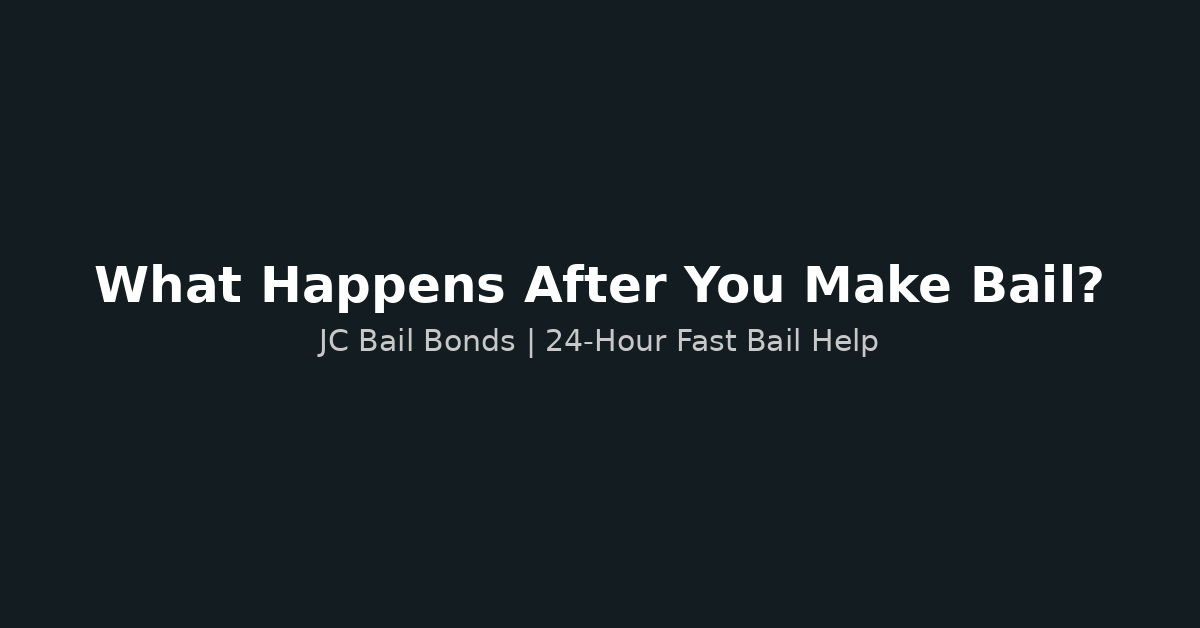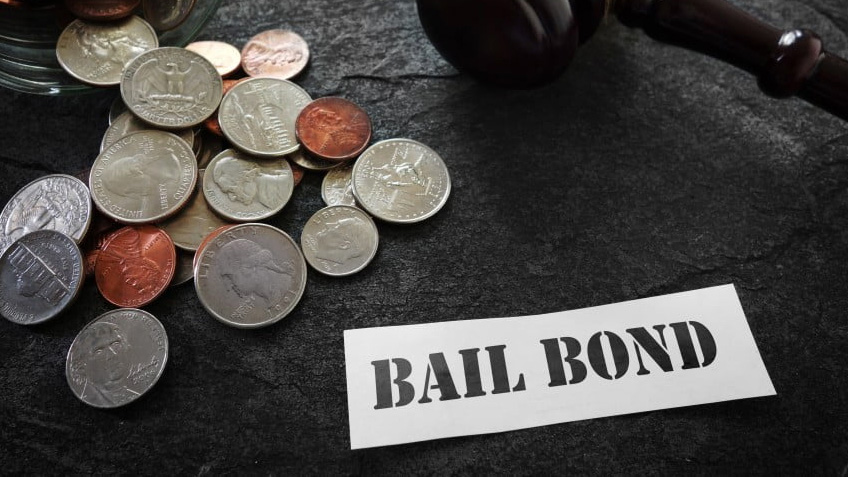Imagine this: a defendant is released on bail, with a promise to show up for their court date. But as the court date approaches they disappear without a trace leaving the bail bondsman holding the bag. This is where the bounty hunter, also known as a bail enforcement agent steps in. Armed with legal authority and resourcefulness these agents track down and apprehend bail skippers before time runs out. But how do they do it? In this article we’ll go inside the methods bounty hunters use to recover fugitives, the challenges they face and how they work with bail bondsman durham.
Need help with bail? JC Bail Bonds can assist you or someone you know through the process. Check out JC Bail Bonds.
What Happens When Someone Skips Bail?
When a defendant is released on bail a bail bondsman posts a surety bond on their behalf. This bond is a legal agreement that the defendant will show up for their court date. But when the defendant becomes a bail skipper they essentially void their bond. The bail bondsman is left holding the bag, thousands of dollars of it.
To recover the lost money the cash only bondsman will call in a bounty hunter who is a fugitive recovery specialist. The role of the bounty hunter is key because once a defendant skips bail the legal system can move slow. The court may issue a warrant but the process to track and capture the fugitive is left up to these specialized professionals.
Bail bondsmen like those at JC Bail Bonds work with bounty hunters to locate and apprehend defendants to minimize financial loss and keep the justice system strong.
The Legal Authority of Bounty Hunters
Unlike regular law enforcement bounty hunters operate under a different set of laws and legal authority that allows them to track and capture fugitives across state lines. This authority comes from a legal contract signed by the defendant when they were released on bail. In that contract the defendant waives certain rights and allows a bounty hunter to apprehend them even without a traditional warrant.
The laws surrounding bounty hunters vary from state to state. For example in some states a bounty hunter can enter private property to apprehend a bail skipper while in others they must work with local law enforcement. Understanding the state laws is key for bounty hunters so they can stay legal and justified.
When tracking down bail skippers bounty hunters must balance their legal rights with ethics. Improper actions like entering a home without permission in the wrong jurisdiction can get them in legal trouble and even sued. So most professional bounty hunters are trained and know the state laws.
Tools and Techniques Used by Bounty Hunters
Bounty hunters use a variety of tools and techniques to track down fugitives. Skip tracing is one of the most common methods used, involves detailed investigation to find out where a person is. Using surveillance, bounty hunters monitor the fugitive’s social media activity, digital presence and movements to figure out where they might be hiding.
For example, through advanced skip tracing technology, bounty hunters can access public records, credit reports and even social media profiles to build a digital footprint of the bail jumper. In some cases, GPS tracking is used to monitor a defendant’s vehicle or cell phone. This is costly but can be very effective in finding out where a bail skipper is.
Other methods include working with informants and using connections with local law enforcement. Bounty hunters often work with neighbors, relatives and anyone who has contact with the fugitive, building a network of information.
Risks and Challenges in Bounty Hunting
Finding bail skippers isn’t just about using the right tools – it’s a job that’s full of physical danger and legal risks. Many fugitives are desperate and will become violent when confronted. Bounty hunters often face armed encounters especially if the fugitive has a history of violence or criminal activity.
To minimize these risks, bounty hunters go through rigorous training in physical confrontation, defensive tactics and firearm safety. Many are also equipped with body armor and firearms for apprehensions. The risk of injury or worse is always present and some bounty hunters have lost their lives in the line of duty.
There are also legal challenges. If a bounty hunter makes a mistake – such as arresting the wrong person or using excessive force – they could be sued or even charged with a crime. So ethical decision making and a good understanding of the legal boundaries is key to their profession.
The Relationship Between Bounty Hunters and Bail Bondsmen
The partnership between bounty hunters and bail bondsmen is a win-win. When a bail bondsman posts a bond, they take on the financial risk that the defendant will show up to court. If the defendant skips bail, the bondsman will lose a lot of money. That’s where the bounty hunter comes in, to recover the fugitive for a percentage of the bond.
Bail bondsmen often have long standing relationships with reliable bounty hunters so they have a go to person to call when a bail skip happens. These relationships are built on trust and understanding of the risks involved in recovering bail jumpers. Many bounty hunters work under contract with bail bond agencies like JC Bail Bonds which provides bail recovery services.
JC Bail Bonds is one of those agencies that offers not only bail bond services but also works with experienced bounty hunters to get any bail jumper found and brought back to face the music. This way both the bondsman and the fugitive are held responsible.
Training and Certification of Bounty Hunters
Becoming a bounty hunter is more than just being able to track down fugitives. Professional bounty hunters go through training and must get certified and licensed depending on state requirements.
Training covers various areas such as surveillance techniques, legal knowledge and self defense tactics. Many bounty hunters also get training in firearms and non-lethal weapons such as tasers or pepper spray to be able to handle dangerous fugitives safely and legally.
In states where licensing is required, prospective bounty hunters may need to pass a background check, complete a certain number of training hours and pass written exams to get certified. Some states also require bounty hunters to be bonded and insured so they are financially responsible for any damages or legal issues that may arise during their work.
Famous Cases of Bounty Hunters Catching Fugitives
Throughout history there have been many cases of bounty hunters catching high profile fugitives. Perhaps the most famous modern bounty hunter is Duane “Dog” Chapman who has caught thousands of fugitives in his career. His high stakes chases have been documented on TV, showing the danger and excitement of fugitive recovery.
While Dog is an outlier in terms of media attention, thousands of less famous bounty hunters do the same job every day. They track down bail jumpers, so they get back to court and the bail system stays intact. Without them many bail bondsmen would have to eat the loss and fugitives would go free.
Conclusion: The Importance of Bounty Hunters in the Bail System
Bounty hunters are the backbone of the bail system. Without them bail jumpers would be free to go and the legal process would be undermined and bail bondsmen would be left with big financial losses. Through their training, tools and collaboration with bail bondsmen, bounty hunters make sure defendants are held accountable.
Need a trusted bail bondsman? JC Bail Bonds offers full service bail bonds, works with experienced bounty hunters to get fugitives back fast and easy. Find JC Bail Bonds here to help you or your loved ones through the bail and legal process.



